August 2021 - Member Spotlight
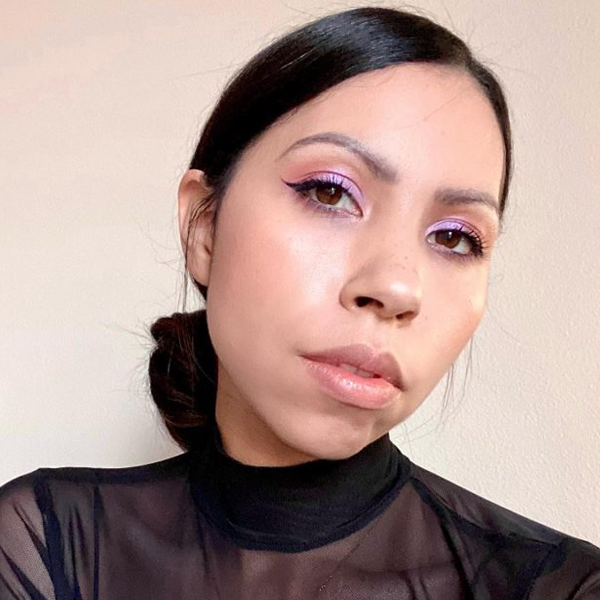
Rachel Richmond
Line Producer
Line Producer
I’m Rachel Richmond and currently a line producer at Netflix! I’m the right-hand person to the producer—kind of like a chief of staff. I’ve worked in gaming and animation for feature films. I am both Black and Mexican American, and Miles Morales was one of the first Afro-Latino main characters that I had seen in an animated movie. Stories like that are the ones I want to work on.
We got to catch up with Rachel Richmond, a Line Producer for Netflix Animation. Rachel, can you please share what you do as a line producer?
I’m the right-hand person to the producer—kind of like a chief of staff. I partner with the producer to manage all the below-the-line crew members, balance the budget, maintain staffing, communicate priorities, keep on top of the production schedule and quotas, and facilitate collaboration with our production partner studio.
Awesome! Sounds like you have a fun and fast-paced job! How’d you get there? Tell us a little about your personal background and professional journey.
I’ve always been in love with filmmaking and storytelling. I was (and still am) a daydreamer, and I wanted to create worlds I could lose myself in. To be honest, I didn’t have an ideal childhood, and there were many struggles. But even though I came from a disadvantaged background, I was never discouraged from chasing my dreams. However, the reality was that it was hard for me to see how I could break into the film industry. I didn’t come from money, didn’t know anyone who worked in film, and didn’t know how to make a career out of my passion. So I had to figure that out on my own.
I went to Boston University for college and studied film. Initially, I wanted to direct horror movies, but I fell in love with producing live events and concerts while I was at BU. I had worked at an indie TV station as a production assistant when I was in high school but, I didn’t make the connection until I was in college that managing and strategizing – ultimately, producing – is what I do well.
After graduation, I took a job as a production assistant at Blue Sky Studios in Greenwich, Connecticut. I grew up loving alternative and adult animation (The Maxx, Aeon Flux, Spawn, Liquid Television, Daria), but I had no idea how animated movies were made. At Blue Sky, I learned about feature film animation on the job, and I was able to experience the filmmaking process from the perspective of different departments on various films. This incredible formative experience allowed me to discover what kind of producer I could be. I found that my strengths were honesty, empathy, openness, risk-taking, a desire to learn, and a passion for storytelling and creative excellence.
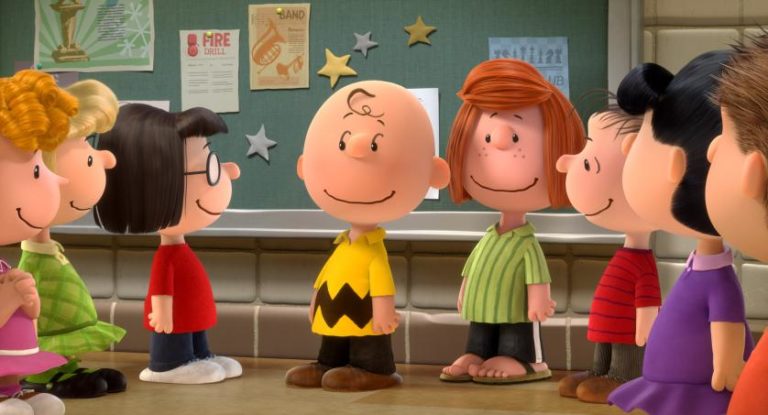
The Peanuts Movie (2015), Blue Sky Studios
These strengths (really, core values) have guided me through every studio I’ve been at, through different industries. And no matter what the project, I have been able to learn something that has added to my “producer toolbelt.” In 2015, I made the leap to the video game industry. While in video games as a cinematics producer, I learned how to manage multiple projects at once, work efficiently while maintaining a high standard of quality, collaborate with numerous creative stakeholders, and, most of all, how to think on my feet.
Then in 2018, Spider-Man: Into the Spider-Verse came out, and when I saw it, I knew I had to go back to feature animation. Miles Morales was one of the first Afro-Latino main characters that I had seen in an animated movie. I am both Black and Mexican American, and Miles’ character connected with me. It showed me how far things had come and how much further we could go with the characters on screen and the stories we could tell. Throughout my career, I was usually the only Black person and the only Hispanic person in the room. There were times I was the only woman in the room. I felt that finally, creators of color and creators from different, diverse backgrounds were being listened to, and I wanted to be a part of that. So I came back to feature film at the end of 2019, and I have been here since!
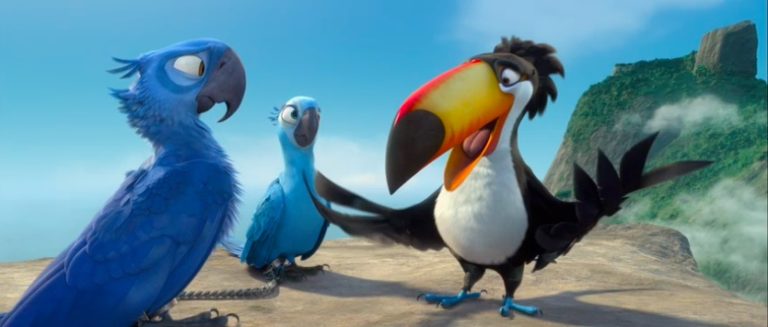
Rio (2011), Blue Sky Studios
What’s a pivotal moment for you in your career so far? Where do you want to go from there?
It’s hard for me to pick a specific moment! It was more a culmination of experiences in my career that led me to understand that no one gets to define me but me and that I have more power than I thought I had. Being a woman of color in industries that are not historically diverse (games and animation), you can find yourself in environments where you’re overlooked, underestimated, and undervalued. Where your culture, your “you-ness” is not appreciated. Where your voice isn’t heard or where you don’t feel empowered to use it. I had to learn how to use my voice to advocate not just for myself but for others, for new ideas, for change. I had to learn how to be okay with challenging the norm and being different and not going along with the majority because it was easier.
The legacy I want to leave behind is that I fought to create a safer, more equitable, and inclusive industry that truly reflects the global, diverse world that we live in. No one should deal with mistreatment, abuse, and toxicity just to do what they love. I don’t know what the future holds for me, but I know that I will have the ability to do things differently and to model the kind of changes I want to see in the industry.
I’m also really into unconventional storytelling that pushes the boundaries of what animation can be. Where can we take this medium [animation]? What stories can we tell? I would love to produce some projects in the adult animation space that aren’t necessarily comedies but are horror, or drama, or sci-fi. Perhaps someday I’ll even direct or write something of my own!
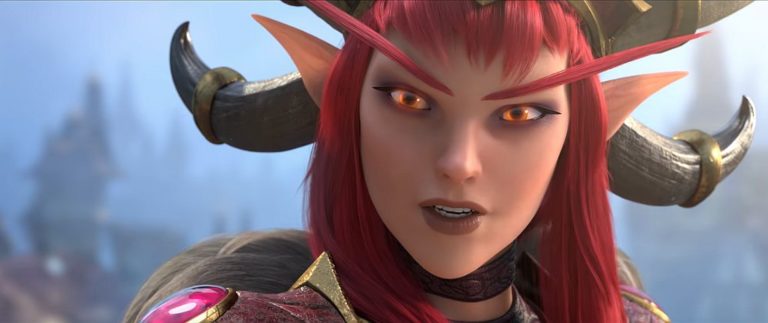
Heroes of the Storm (2015), Blizzard Entertainment
Why is representation important for you to see in the animation industry? What does that entail?
This is a complex issue. I don’t think the lack of representation in the animation industry will be solved by studios just saying, “We want to hire more diverse people.” Because you have to actually hire those people and make sure they feel supported so they don’t leave the industry. You need to change the environments they work in. We should root out workplace toxicity, discrimination, and bad actors at studios who are protected because they are seen as vital to success. No one is worth that trade.
In my past, I have heard a lot of “we want to hire more diverse people.” But that statement is so often followed by, “…but there are no diverse candidates out there with this skillset or experience level.” It’s our job to find that talent. When you are in leadership, it is all of our responsibilities, not just HR or Recruiting. It’s pushing people to look outside of their personal connections, it’s supporting trainee programs, advocating for entry-level opportunities that provide livable wages, and creating a structure where remote work is an option. It’s about showing up every day and choosing to do the hard thing.
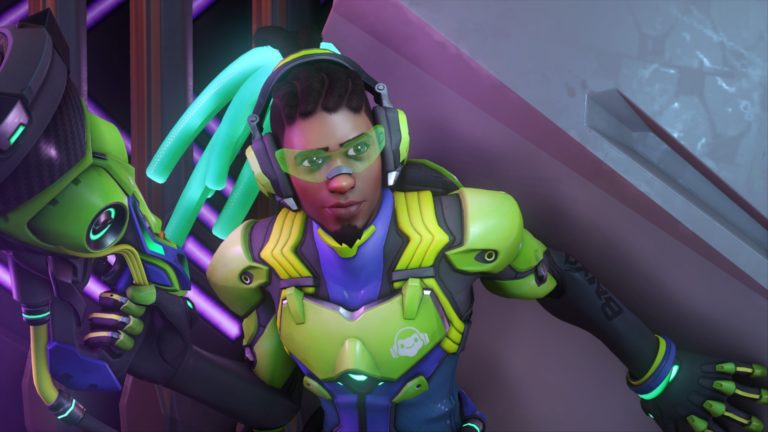
Overwatch 2 (TBA), Blizzard Entertainment
We also have to start early and look at the educational system and the existing college-to-studio pipelines. We need to reckon with the fact that money plays a huge part in what opportunities you’re going to be able to have in this industry. For example, taking an unpaid internship or a low-paying PA job just to break into the entertainment industry is untenable for most people. Not everyone can afford to go to a “top-tier” art school and get plugged into a studio job. Not everyone can live and work in California. (Besides, talent is global.)
Finally, as a woman of color and a person from a disadvantaged background, I experience deep imposter syndrome. “I shouldn’t have my title, my job,” and so forth. It’s incredibly hard when you don’t see other people who look like you modeling the career you want. If they’re not there, is that even a possibility for you? I eventually realized that even though I didn’t see other people who looked like me, I could be the first. And now, it’s my responsibility to bring others along and to create opportunities. I don’t have to wait for someone to do it for me.
There’s a lot of thoughts on what it means to be Latinx. What does that mean to you?
Growing up mixed-race, I struggled to figure out where I fit in the Latinx community. I didn’t know how to encompass all of my racial and ethnic identities. I spent large portions of my childhood disconnected from the Latinx community, so my understanding of what it meant to be Latinx was largely dictated by others or by what the media portrayed. And I didn’t feel like those descriptions or depictions took into account my entire being. For instance, I used to feel shame that I didn’t speak Spanish as if that were the defining trait, and I could no longer lay claim to being Mexican American.
Ultimately, I learned that there is no one way to be Latinx or one definition that would fit. And that, to me, is the beauty of the Latinx community. It’s so rich and diverse. Everyone has different traditions, different cultural mores, and different languages. We all look different and experience Latinx-ness in our own unique way.
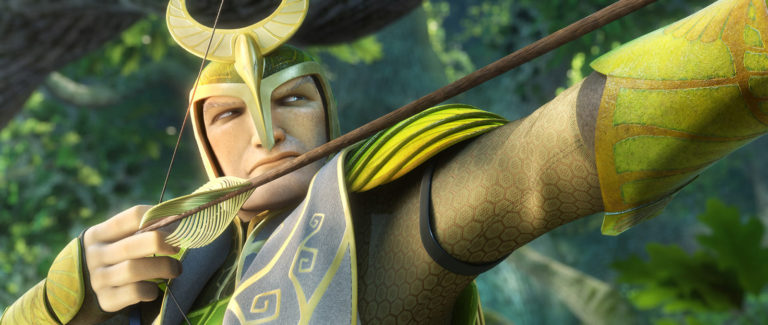
Epic (2013), Blue Sky Studios
Let’s talk about mental health. How are you taking care of yourself?
As people having to operate in spaces that were not constructed with us in mind or that we were historically excluded from, there is so much we have to deal with on a day-to-day basis that we don’t even recognize. There’s so much that the world puts on us that we need to unpack and that we need to understand. There’s a lot I didn’t realize I was impacted by until I went to therapy and could see myself and my life from a different perspective.
It took me a while to understand that sensitivity is not a weakness. Talking openly about my thoughts and my feelings does not make me a weak person. It took me years to get to a place where I could recognize that seeking help from an actual trained professional was not a negative. Now I am unabashedly pro-therapy. I deal with anxiety and depression and because I’ve powered through so much in life, it was hard to acknowledge that I couldn’t just get through it by myself. I realized that I needed a helping hand. And that’s been life-changing.
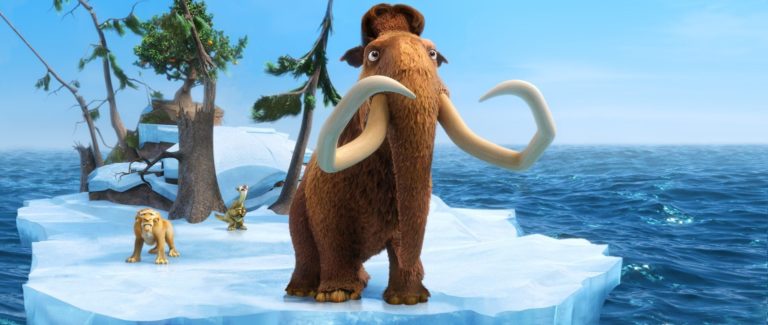
Ice Age: Continental Drift (2012), Blue Sky Studios
And lastly, what’s something you’re really, really hyped about?
I’m incredibly excited for Spider-Man: Into the Spider-Verse 2, the sequel to Attack the Block, and being able to share more about the film I am working on – The Witch Boy.
Thank you for interviewing with us, Rachel!
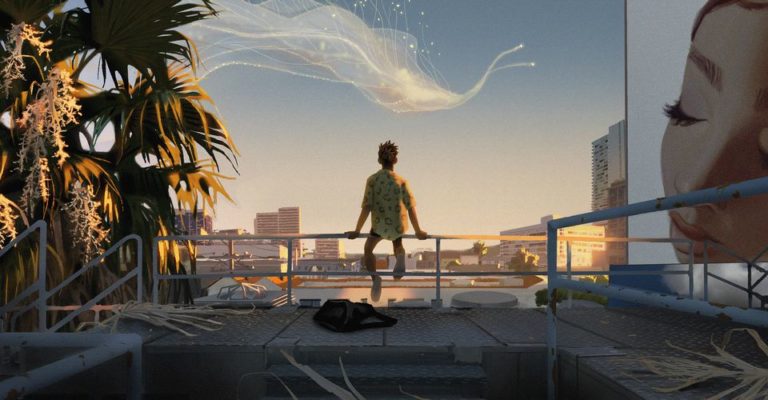
The Witch Boy (TBA), Netflix Animation
